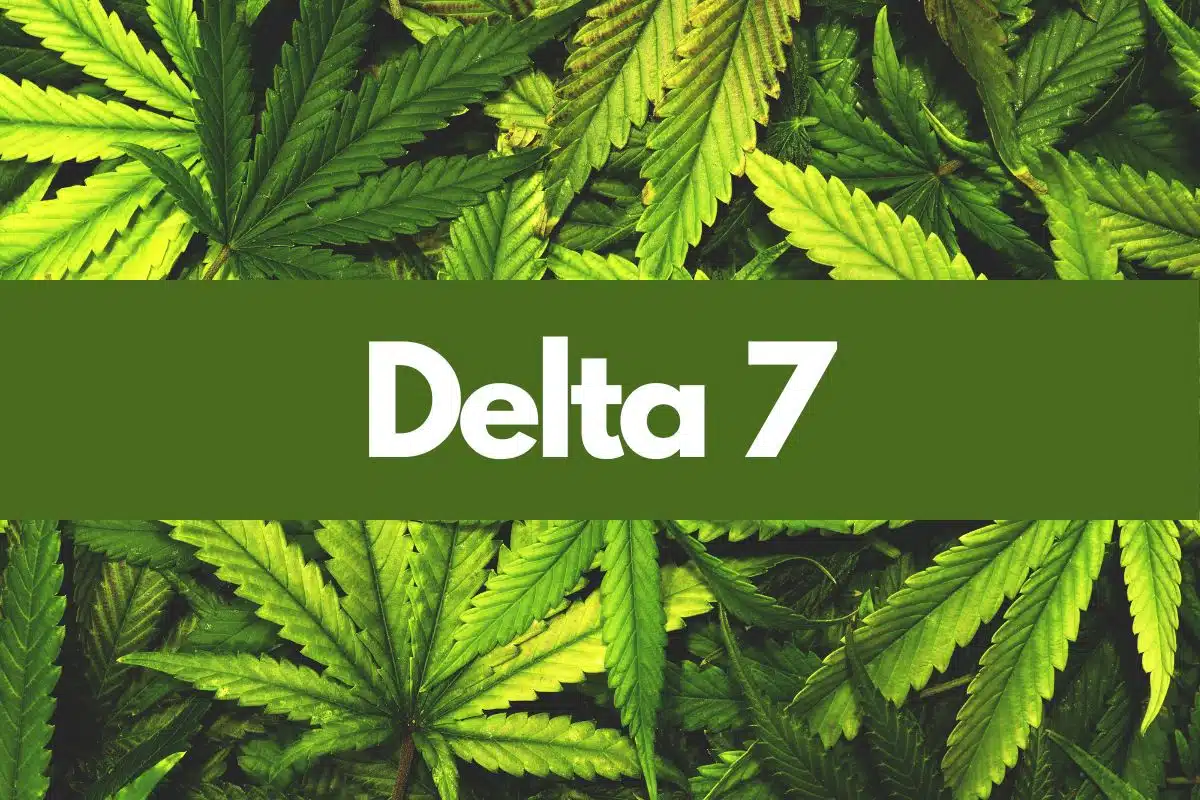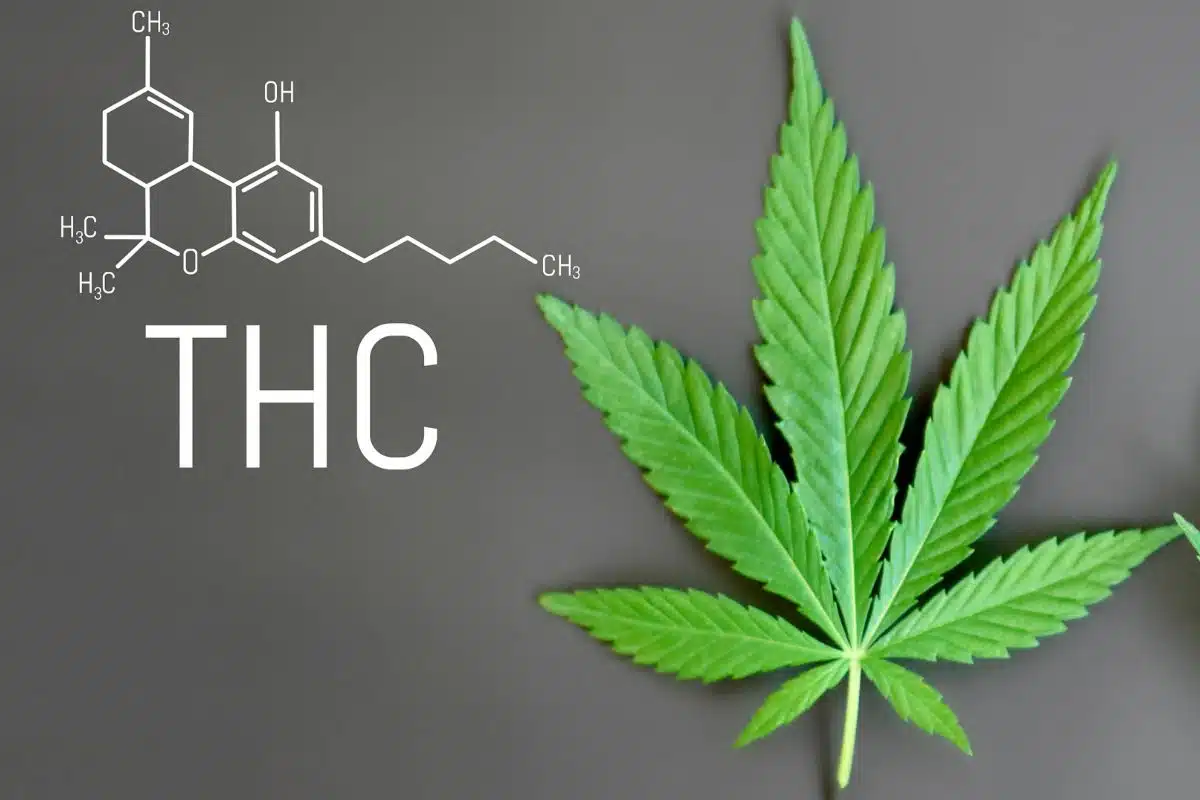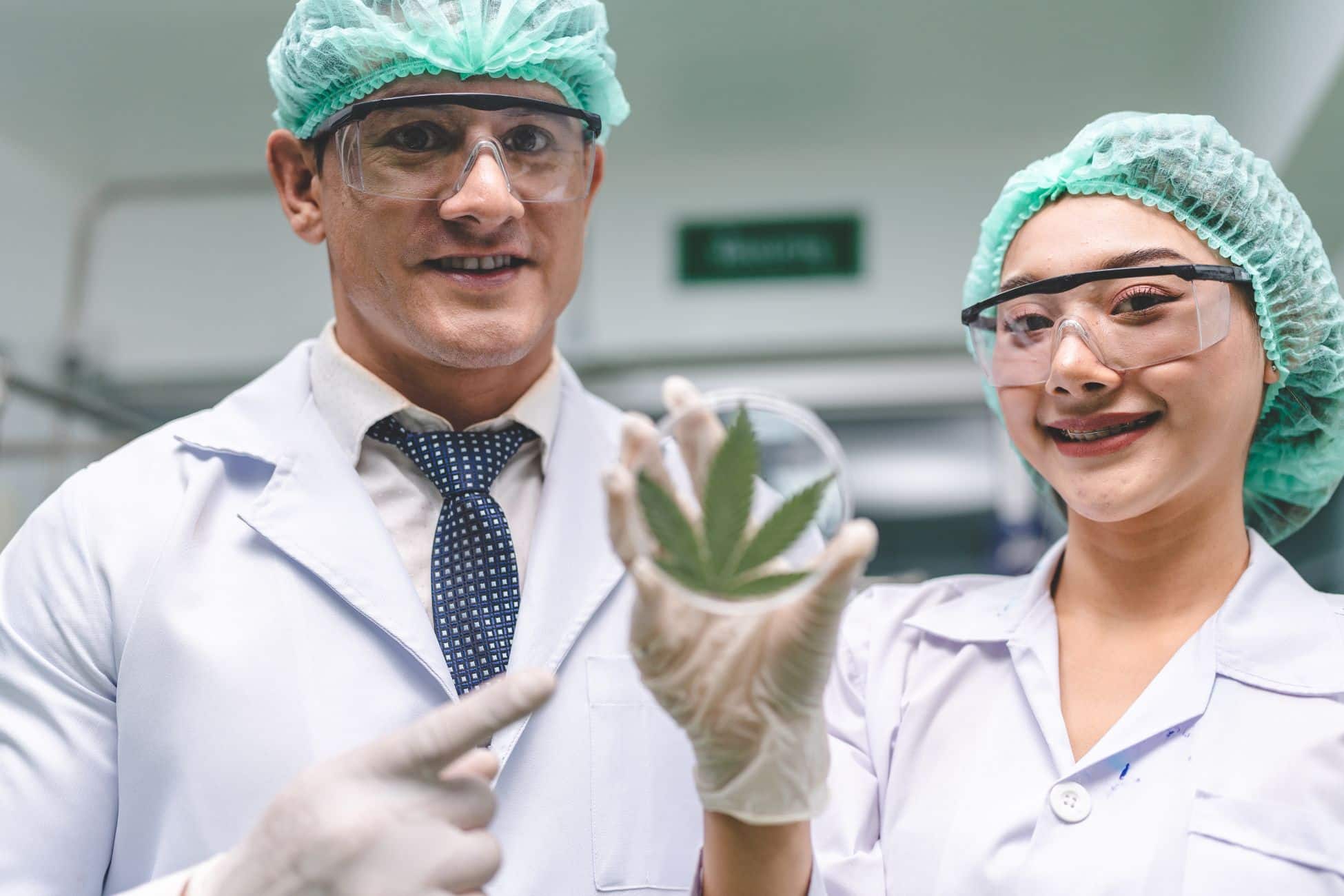Delta 7 THC: Unraveling the Potential of This Rare Cannabinoid
Hopping into the cannabinoid universe feels like hitting the jackpot, and you might just find delta-7 THC, a hidden gem among the cannabis family. It stays out of the limelight, unlike its famous kin, delta-8 and delta-9 THC – yep, the magic behind the marijuana buzz. Delta-7 THC is still flying under the radar, but getting to know it could change how you ride the buzz wave, keeping things mellow and your well-being on point. If you’re all about reaching sky-high vibes without the downsides, then discovering delta-7 THC’s secrets is like finding the spot where X marks the treasure on a pirate’s map. Stick around to dig up jaw-dropping facts that’ll get you hooked!
THC, or tetrahydrocannabinol, is renowned for its significant presence in cannabis and the varied psychoactive experiences it provides. Different forms of THC, including delta-7 THC, contribute to the diversity of cannabis’s effects. However, the exact nature, efficacy, and safety profile of delta-7 THC remain less clear due to the limited scientific investigation. What is recognized is that all THC types interact with your body’s endocannabinoid system, which plays a role in regulating multiple physiological and cognitive processes.
Table of contents
Being knowledgeable about cannabinoids like delta-7 THC can empower you to navigate the complex world of cannabis with greater confidence. Whether you are a consumer seeking to understand the subtle differences between cannabinoid variants or a curious individual keeping abreast of cannabis research developments, expanding your comprehension of THC’s various forms underscores a commitment to responsible and enlightened consumption.
Chemical Profile of Delta 7 THC

Delta 7 THC is a relatively obscure cannabinoid that shares chemical similarities with its more well-known counterparts. As you explore this cannabinoid’s unique profile, you’ll gain insight into its structure and effects.
Comparison with Other Cannabinoids
Delta 7 THC, a minor cannabinoid found in the cannabis plant, stands apart from its relatives such as Delta 9 THC and Delta 8 THC. While all these molecules are forms of tetrahydrocannabinol (THC) isomers, Delta 7 THC is present in much smaller quantities. Unlike the well-studied Delta 9 THC, known for its prominent psychoactive properties, and the legal ambiguities surrounding Delta 8 THC that have recently gained attention, Delta 7 THC has not been as extensively researched or understood.
Psychoactive Properties
As with various synthetic and natural cannabinoids, the psychoactive effects of Delta 7 THC are a key area of interest. While Delta 9 THC is highly psychoactive, contributing to the classic ‘high’, the psychoactive properties of Delta 7 THC are less documented. However, it’s suggested that, like other minor cannabinoids, it may have a subtler impact on the user’s perception and mood.
Chemical Structure
The chemical structure of Delta 7 THC is what defines its function and differentiates it from other cannabinoids. In comparison to Delta 9 THC, where the double bond is located on the ninth carbon chain, Delta 7 THC has it on the seventh, although specific research into its structure is limited. This positioning affects how this cannabinoid interacts with the body’s endocannabinoid system, potentially leading to varying pharmacological effects. Understanding its precise molecular arrangement might reveal more about its potential as a therapeutic compound.
Exploring the chemical profile of Delta 7 THC is pivotal in recognizing its place in the larger family of cannabinoids, including its possible applications and effects on the body and mind.
Legal Aspects

In navigating the complex landscape of delta 7 THC, it’s crucial for you to understand the specificities of federal law and how the 2018 Farm Bill shapes its legal status.
Federal Law and Regulations
Under current federal law, cannabinoids derived from hemp are legal; however, this legality hinges closely on the definition of hemp and its THC content. The legal threshold is set at a delta-9 THC concentration of not more than 0.3 percent on a dry weight basis. Delta 7 THC, as a compound, is not explicitly mentioned in the Controlled Substances Act (CSA), which may create a gray area regarding its legal status. You need to be aware that state-level restrictions could further impact the legality of delta 7 THC despite federal allowances.
Delta 7 THC Under the 2018 Farm Bill
The 2018 Farm Bill signified a major shift in cannabis policy in the United States, particularly with hemp-derived compounds. If delta 7 THC is derived from hemp and contains delta-9 THC levels within the legal limits, it falls into a category that is federally permissible. Yet, limitations and regulations concerning the exact nature of cannabinoid extraction and processing remain in place. Your comprehension of the restrictions and permitted thresholds is essential for ensuring compliance within this arena.
Biological Interactions
In exploring the biological interactions of Delta-7 THC, you’ll uncover how this compound interacts with your body on a molecular level, particularly within the endocannabinoid system and how it binds and activates specific receptors.
Interaction with the Endocannabinoid System
Delta-7 THC interfaces with your endocannabinoid system (ECS), which plays a crucial role in regulating various physiological processes. The ECS comprises endocannabinoids, receptors, and enzymes. Delta-7 THC molecules have an affinity for CB1 and CB2 receptors, which are located in your central nervous system and immune cells, respectively.
- CB1 Receptors: Predominantly found in the brain and nervous system.
- CB2 Receptors: Mainly located on immune cells.
When Delta-7 THC enters your system, it mimics endocannabinoids by binding to these receptors, which can influence various bodily functions.
Receptor Affinity and Activation
The binding efficiency and activation strength of Delta-7 THC can vary at the CB1 and CB2 receptors.
- CB1 Receptor Activation: May affect neurological functions due to high receptor concentrations in the central nervous system.
- CB2 Receptor Activation: Can modulate responses of the immune system.
Each receptor’s activation by Delta-7 THC leads to different physiological outcomes due to the receptor’s location and role in the body. Delta-7 THC’s interaction with CB1 and CB2 receptors can influence your overall well-being, affecting factors such as mood, appetite, pain sensation, and immune system responses.
Effects and Benefits

When exploring Delta-7 THC, a compound less commonly discussed than its counterparts Delta-8 and Delta-9 THC, you’ll find that while research is still emerging, there are noteworthy impacts on appetite and pain management, as well as mood regulation and stress.
Therapeutic Potential
Delta-7 THC may offer therapeutic benefits similar to other cannabinoids, such as anxiety relief and mood enhancement. Its interaction with the body’s endocannabinoid system suggests potential benefits ranging from anti-inflammatory effects to cognitive improvements. However, concrete conclusions await further clinical trials.
Impact on Appetite and Pain
Delta-7 THC shows promise in appetite stimulation and pain relief. As with other cannabinoids, you might experience an increased desire to eat, which can be beneficial if you’re dealing with appetite loss. Moreover, its possible analgesic properties could bring comfort if you’re suffering from chronic pain, making daily activities more manageable.
Mood and Stress Regulation
The compound might contribute to mood elevation and stress reduction, providing you with a sense of relaxation and euphoria. While it is a psychoactive substance, Delta-7 THC potentially offers a gentler effect compared to Delta-9 THC, potentially reducing the intensity of stress-induced anxiety without overwhelming cognitive effects.
Usage and Safety
When considering the use of Delta-7 THC, it is important to understand proper dosing and to be aware of potential side effects to ensure safe usage. Tolerance levels can vary based on individual factors, and being informed on how to manage any risks associated with its use is essential.
Appropriate Dosage and Tolerance
To avoid adverse events, it is crucial to start with a low dose of Delta-7 THC and gradually increase it as necessary. Keep in mind that lab testing can provide insight into the potency of Delta-7 THC products, aiding you in determining a safe starting point. Your tolerance will develop over time, so monitor your body’s reaction and adjust the dosage accordingly.
Possible Side Effects and Risk Management
Delta-7 THC may cause side effects such as dry mouth, nausea, dizziness, vomiting, headache, and paranoia. It is rare, but possible, to experience an overdose; symptoms could include severe dizziness, vomiting, or paranoia.
- Risk Management involves:
- Staying hydrated to combat dry mouth and dizziness.
- Eating prior to consumption to minimize nausea.
- Lying down in a comfortable, safe environment if you experience severe side effects.
Being aware of your own health history and keeping communication open with a healthcare provider can help manage and mitigate potential adverse events. Always ensure that you are using products from reputable labs or sources that adhere to safety standards.
Comparative Analysis of THC Derivatives

As you explore the complex world of THC, understanding the nuances between different derivatives is key to comprehending their varying effects and potential uses.
Delta 8 vs. Delta 7 THC
Delta 8 THC is an isomer of both THC (commonly referenced as Delta 9 THC) and Delta 7 THC, a lesser-known compound. While Delta 8 is noted for its lower psychotropic potency compared to Delta 9, it still exhibits a similar profile of therapeutic effects. Studies show that Delta 8 can be derived from CBD, which is found in hemp, a type of cannabis plant. Delta 7 THC, although less studied, has its own unique structure and function.
- Delta 8: Known for a milder high and lessened anxiety.
- Delta 7: Lacks extensive research, but may have distinct effects.
Delta 9 THC and Other Isomers
Delta 9 THC is the most abundant cannabinoid in marijuana and is well-researched for its psychoactive properties. It’s the benchmark from which the activity of other cannabinoids is often compared. Other isomers, like Delta-8-tetrahydrocannabinol and Delta-10-tetrahydrocannabinol, differ in their placement of a critical double bond on their carbon chain. This slight variation significantly affects how they interact with cannabinoid receptors and, therefore, their overall effects.
- Delta 9 THC: Highly potent, produces strong euphoria.
- Delta-10: Less potency, may offer a more energetic experience.
Cannabinoid receptors in your body interact differently with each derivative due to their unique chemical structures. This distinction is crucial in determining their potential benefits and the experiences they may offer.
Market and Consumer Interest
With the cannabis industry evolving rapidly, you’ll find that market players are introducing various cannabinoids, like Delta 7 THC, to meet consumer interest in novel experiences. This section dives into the availability of these products, consumer trends and preferences, and the impact they are having on the broader cannabis industry.
Availability of Delta 7 THC Products
Delta 7 THC is a lesser-known cannabinoid, which means products containing this compound may not be as widely available as those with Delta 9 THC or CBD. However, as interest in unique hemp-derived cannabinoids grows, you might come across Delta 7 THC items in specialty hemp and cannabis stores. These products often boast their potential to offer different psychoactive effects from the more common variants of THC.
Consumer Trends and Preferences
You are part of a consumer base that is increasingly knowledgeable and curious about hemp and its cannabinoids. There’s a noticeable trend toward wanting to try new cannabis experiences, which can include synthetic or naturally occurring compounds. Consumers look for products that potentially offer unique experiences, and Delta 7 THC might pique interest due to its rarity and distinct potency — a trend reflected in consumer choices and market demand.
Impact on Cannabis Industry
Your choices, as a consumer, along with emerging regulation, significantly impact the cannabis industry. The introduction of Delta 7 THC and other novel cannabinoids can shape cannabis consumption trends, leading to changes in product development and market offerings. The hemp plant continues to be a source of exploration as companies strive to meet your interest in a range of psychoactive effects and potencies in the products you choose to consume.
Additional Considerations
In exploring Delta 7 THC, it’s essential to consider the current research landscape and its interactions with other substances. Your understanding of these elements will enhance your knowledge of its potential and limitations.
Research and Clinical Studies
Substantial research on Delta 7 THC remains limited, and it’s crucial you are aware that much of the information derives from studies on its close relatives, such as Delta 8-THC and Delta 9-THC. Clinical studies involving humans and animals are necessary to discern the distinct profile of Delta 7 THC. As of now, interest in cannabinoids like CBG and CBN is increasing, marking a promising future for comprehensive research into less common cannabinoids, which may ultimately include Delta 7 THC.
Interaction with Other Medications and Substances
Delta 7 THC could potentially interact with other medications and drugs in your system, although specific interactions are not clearly defined in the literature. It’s important to approach Delta 7 THC with caution if you are taking other substances. Notably, drugs like Dronabinol, a synthetic form of THC, have established interaction protocols, which can give some initial guidance regarding cannabinoid interactions. Always consult with your healthcare provider before mixing cannabinoids with other medications.
Terminology and Nomenclature
Understanding the terminology and nomenclature associated with delta 7 THC is crucial to grasping its role in cannabis chemistry. This knowledge will allow you to accurately discuss and research this cannabinoid.
Other Names for Delta 7 THC
Delta 7 THC, while not as commonly referenced as its analogue delta-9 THC, is another compound found in the cannabis plant. It’s important to note that delta 7 THC is often less discussed and can be confused with more prevalent cannabinoids. However, it is essential to distinguish it from delta-9 THC and delta-8 THC, which are different chemical entities. The scientific literature may use various synonyms for delta 7 THC, but specificity is key in your research to avoid conflating it with other cannabinoids.
Terpenes and Related Compounds
Terpenes, the aromatic compounds found in many plants, are also significant in cannabis. They contribute to the plant’s unique scent profile and potentially to its therapeutic effects. While terpenes are not cannabinoids like delta 7 THC, their presence in cannabis affects the plant’s overall chemistry and user experience. Terpenes can combine with cannabinoids like delta 7 THC and others to create what is known as the entourage effect—a theory suggesting that cannabis compounds work better together than in isolation.
Eclectic Insights
You will discover how Delta 7 THC has left an imprint on music and culture, as well as explore the historical journey and future possibilities of this cannabinoid.
Delta 7 THC in Music and Culture
Delta 7 THC, a less known cannabinoid compared to Delta 9 THC, has subtly influenced music and culture. Artists may reference the distinctive effects of various THC compounds in lyrics and performances, shaping how listeners perceive cannabis. For instance, the ambiance at concerts or festivals is often characterized by a cloud of music-infused air where Delta 7 THC could be a contributing factor, although it’s less prominent than its counterparts.
Historical Context and Future Outlook
Historically, the knowledge of Delta 7 THC has been overshadowed by the dominant Delta 9 THC. Your understanding of cannabis is mostly rooted in Delta 9, but as science advances, cannabinoids like Delta 7 are gaining attention for their unique properties. Looking towards the future, experts anticipate a trend where lesser-known cannabinoids will play a larger role in medicinal and recreational use, informed by research and evolving regulations.
Keep in mind that Delta 7 THC, like all aspects of cannabis culture, is subject to the ebb and flow of societal trends and legal landscapes, suggesting an intriguing unfolding story for you to follow.
Expert Views

In this section, you’ll find curated insights from experts detailing the nuances of Delta 7 THC, a compound found in cannabis. You’ll discover what medical professionals and scientists have to share about its potential therapeutic and medicinal uses.
Medical Professionals’ Opinions on Delta 7 THC
Medical experts have begun to cautiously recognize the therapeutic use of cannabinoids, including Delta 7 THC. While research is still emerging, some professionals in the medical community note its potential to offer symptomatic relief similar to other cannabinoids. However, rigorous clinical trials are essential to fully understand the efficacy and safety profile of Delta 7 THC.
Scientific Community Perspectives
The scientific community is actively exploring the medicinal potential of various cannabinoids, including Delta 7 THC. Researchers focus on isolating specific effects of this compound to ascertain its benefits. Initial studies suggest a nuanced pharmacological profile, but as with all cannabinoids, the need for comprehensive scientific evaluation remains paramount. Access to high-quality research materials and data is crucial for these evaluations to inform future therapeutic applications.
Comparative Toxicology
In assessing the toxicological impacts of delta-7 THC, it’s crucial to understand how its effects may differ between animals and humans, and how varied THC structures can influence toxicity.
Effects on Animals vs. Humans
When evaluating the toxicology of delta-7 THC, differences in response between animals and humans are significant. Your understanding of these differences is vital because the same dose can have varied effects across species. Animal studies often serve as a precursor to human trials; however, you should be cautious about directly transferring findings from one to the other. For instance, animals might exhibit a higher tolerance or sensitivity due to differences in metabolic rates and endocannabinoid system compositions.
Studying Diverse THC Structures
The diversity in THC structures plays a pivotal role in their pharmacological and toxicological profiles. You should note that even minor variations in molecular structure can result in significant changes in how these compounds interact with the body. Studying the effects of distinct THC isomers, like delta-7 THC, helps you understand the specific actions and risks associated with each compound. To put it simply, the shape and arrangement of atoms in THC compounds like delta-7 determine their affinity for cannabinoid receptors and subsequent toxicological effects on your body.
Frequently Asked Questions
This section addresses common questions about Delta 7 THC, providing concise and factual information to help you understand its distinctions, legal status, potency comparison, safety, potential benefits, and product availability.
What distinguishes Delta 7 THC from other cannabinoids?
Delta 7 THC is a rare cannabinoid with a structure that’s different from its more commonly known relatives, Delta 8 and Delta 9 THC. It’s believed to interact with the body’s endocannabinoid system uniquely, although data on its properties and effects is currently limited.
What should consumers know about the legality of Delta 7 THC products?
The legality of Delta 7 THC products can vary by jurisdiction as they fall into a gray area of the law. It is important to check your local and state regulations to determine the legal status of Delta 7 THC in your area before making a purchase.
How does the potency of Delta 7 compare to Delta 8 and Delta 9?
While comparative research is sparse, the potency of Delta 7 THC is hypothesized to be less than Delta 9 THC but similar to or slightly more potent than Delta 8 THC. However, individual experiences with cannabinoids can differ.
Is there any research on the safety and efficacy of Delta 7 THC for vaping?
Research specifically targeting Delta 7 THC’s safety and efficacy, particularly for vaping, is scant. As with any cannabinoid product, it’s crucial to obtain them from reputable sources that provide transparent lab testing results.
Are there specific benefits associated with Delta 7 THC that differ from CBD?
The purported benefits of Delta 7 THC might differ from CBD due to its psychoactive properties, which CBD lacks. However, comprehensive studies on Delta 7 THC’s unique benefits are not widely available at this time.
What varieties of products are available that contain Delta 7 THC, such as gummies or oils?
You can find Delta 7 THC in a variety of product forms including gummies, oils, and vape cartridges. The availability of these products may be limited due to the rarity of Delta 7 THC.

